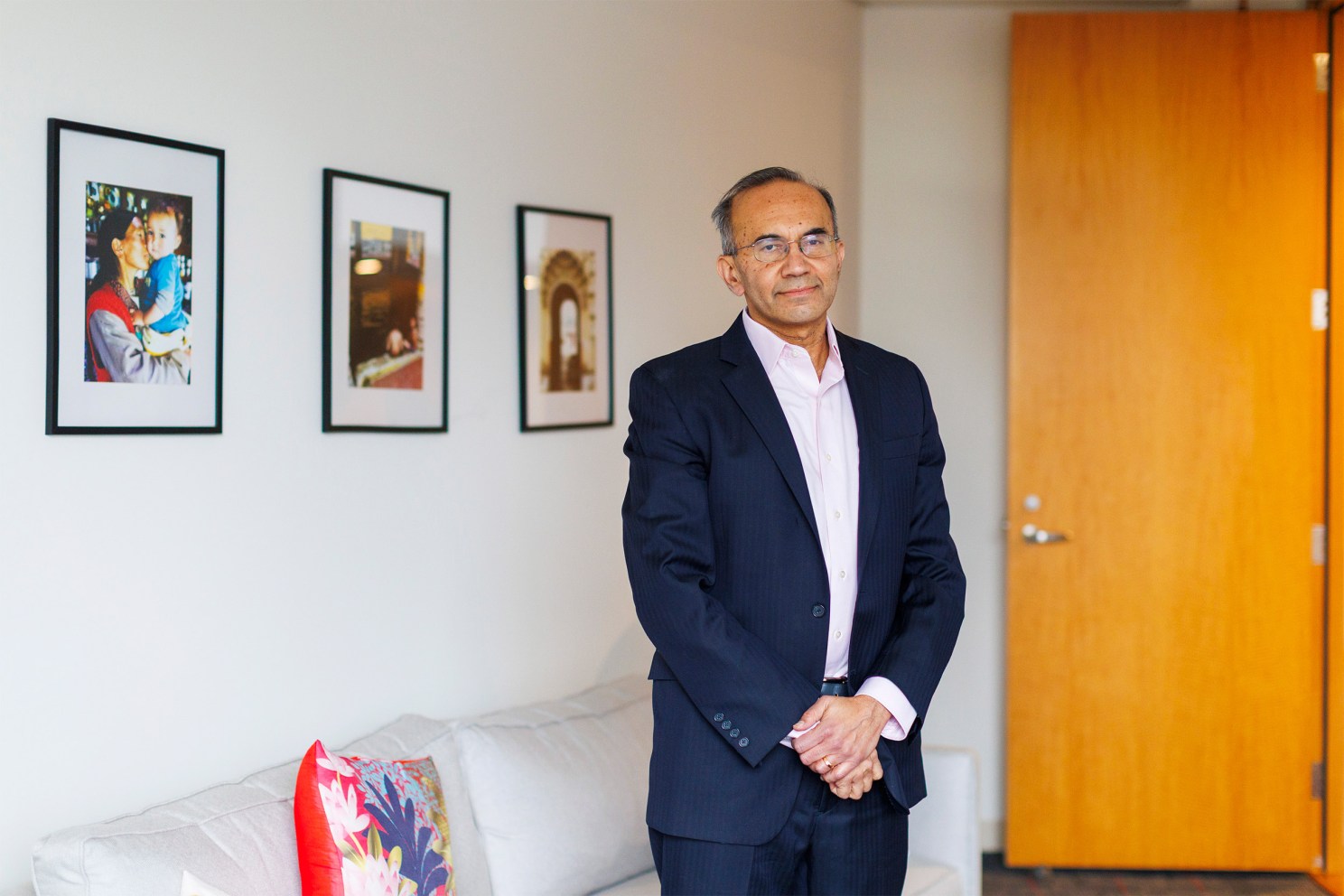Tarun Khanna leaves lasting legacy on India and South Asia at Harvard

Tarun Khanna.
Stephanie Mitchell/Harvard Staff Photographer
When Tarun Khanna took over the South Asia Initiative 15 years ago, there was one staff member, a small office in CGIS South, and almost no faculty involvement from around campus. He saw an enormous opportunity to bring together South Asia-focused scholars, students, and alumni at Harvard and connect them more closely with the region, but there were some major hurdles. One of those was the relatively small number of South Asian specialists in the Faculty of Arts and Sciences — a situation that hasn’t improved — who could join him in his efforts to expand research and, in particular, interdisciplinary research on the region.
He also wanted the center to be an open platform for faculty from across the University to “plug and play,” rather than being driven by the director’s interests. “From day one, I said, this is a platform and anybody’s welcome,” says Khanna, Jorge Paulo Lemann Professor at Harvard Business School.
Fifteen years later, Khanna has been instrumental in the extraordinary rise of South Asian scholarship on campus. Today, the initiative has grown into an endowed center, the Lakshmi Mittal and Family South Asia Institute, with a full-fledged office, a buzzing calendar of events, an office in New Delhi, and a large roster of faculty from every corner of Harvard.
It has also launched major interdisciplinary research projects, an aspect of Khanna’s legacy of which he is most proud. He credits Drew Faust, former president of Harvard who appointed Khanna as the center’s director, with inspiring the idea through her One Harvard initiative.
One of the first of these interdisciplinary initiatives was the Kumbh Mela project, led by Diana L. Eck from Harvard Divinity School, and Rahul Mehrotra from the Graduate School of Design.
“That project was our first large-scale expression of One Harvard. Until that point, we hadn’t really made it come alive, and we demonstrated this was possible,” says Khanna. “Many projects were launched in its wake: the Partition of British India, Making Meritocracy in India and China, the Lancet Citizens’ Commission on Universal Health Coverage in India, and our new Climate Change in South Asia Platform.”
The institute also brought faculty together in organizational ways, including a Steering Committee that had every School represented. “I was determined that the collective needed to decide the priorities of the institute,” says Khanna. “This governance system was effectively an organizational commitment for the open platform idea.”
Khanna says that one of his measures of success for the institute is when he meets older alumni who say that they wish the institute had been established when they were at Harvard. “I think this is the most emotive expression of something that they either explicitly or viscerally thought was missing and that now they see in the institute,” he says.
Khanna also had another important principle for the institute’s success: it needed to have people on the ground in the region, “feet on the street,” so as to be fully immersed in the interesting phenomena they were studying. In 2018, the institute opened an office in New Delhi, which now has a full staff, hosts in-residence scholars, acts as an information hub for Harvard faculty and students, and hosts a full array of events.
Khanna, who has always dreamed big for the institute alongside previous Executive Director Meena Sonea Hewett and current Executive Director Hitesh Hathi, says there is still much to do. “We’ve barely scratched the surface of possibility at an institution as intellectually rich as Harvard. We work with less than 5 percent of the faculty, and there’s an opportunity to expand that quite dramatically.”
Khanna will be returning to HBS full time, and Professor Diana L. Eck will step in as interim faculty director of the Mittal Institute on July 1. Khanna is grateful for the support he’s received during his time as Mittal Institute’s faculty director from the School, as well as from former dean, Nitin Nohria, current dean, Srikant Datar, the Office of the Vice Provost for International Affairs, and Harvard’s Global Support Services team.
As for what is up to next for Khanna: “I’m always interested in large-scale social problems, and there’s no shortage of intellectual and policy projects at HBS and across Harvard’s faculties. And the Mittal Institute won’t be so easily rid of me either.”




